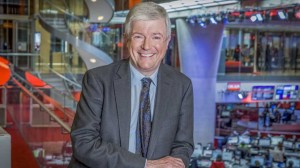
After more than 40 years of operation, DTVE is closing its doors and our website will no longer be updated daily. Thank you for all of your support.
BBC director general outlines digital direction
BBC director general Tony Hall has spoken out in support of changing the licence fee for “the internet age” and outlined a number of planned digital innovations designed to keep the BBC relevant.
Delivering a speech at New Broadcasting House in London yesterday titled ‘The BBC in the internet era’, Hall said that he supported charging viewers that only watch catch-up television via the BBC iPlayer the licence fee, and said that implementing an alternative universal household levy would also help to modernise the fee.
Hall said that “the internet age strengthens the case for the BBC” and said that the corporation planned to introduce a raft of new features, including better recommendation and personalisation tools.
“We face much greater competition for ideas and talent [today]. BBC services won’t be as prominent in an on-demand world. And younger audiences are using linear channels less than their parents,” said Hall.
“There’s real jeopardy here. If the BBC doesn’t address these challenges, we could become irrelevant. But I’m confident that we can deal with them, precisely because each of those challenges is also a huge opportunity.”
Detailing the BBC’s new digital plans, Hall said the BBC will introduce personalised recommendations on the iPlayer and homepage.
“We’ll recommend news and sports stories just for you. We’ll give you your own BBC app, which will remember all your favourite programmes, artists, music, interests, DJs and sports teams. All in one place,” he said.
Hall claimed that the “potential is huge” and that the audience can become schedulers.
“This is the start of a real transformation – the myBBC revolution. How to reinvent public service broadcasting through data. But we’ll always be doing it our way – not telling you what customers like you bought, but what citizens like you would love to watch and need to know,” said Hall.
He also revealed the name of the UK pubcaster’s new production division, BBC Studios. This will handle all BBC productions – excluding sport, current affairs and children’s TV – as part of a plan to allow the BBC to produce for other channels and to broaden the BBC’s own commissioning process.
Announcing the studio, Hall rejected calls for the BBC to become a “publisher broadcaster” and end in-house production, and added: “Production is vital to the future of the BBC, but the current model just won’t last.”
Hall said he would push ahead with plans for BBC Studios to ultimately become a wholly-owned but separate BBC subsidiary, but added this was subject to discussions with BBC overseer BBC Trust and the BBC’s licence fee charter renewal in 2017.
Hall first outlined plans to create the new-look production unit after a series of top-level mergers and acquisitions agreements changed the face of UK independent production, and as the BBC faces various threats to its operating model.



